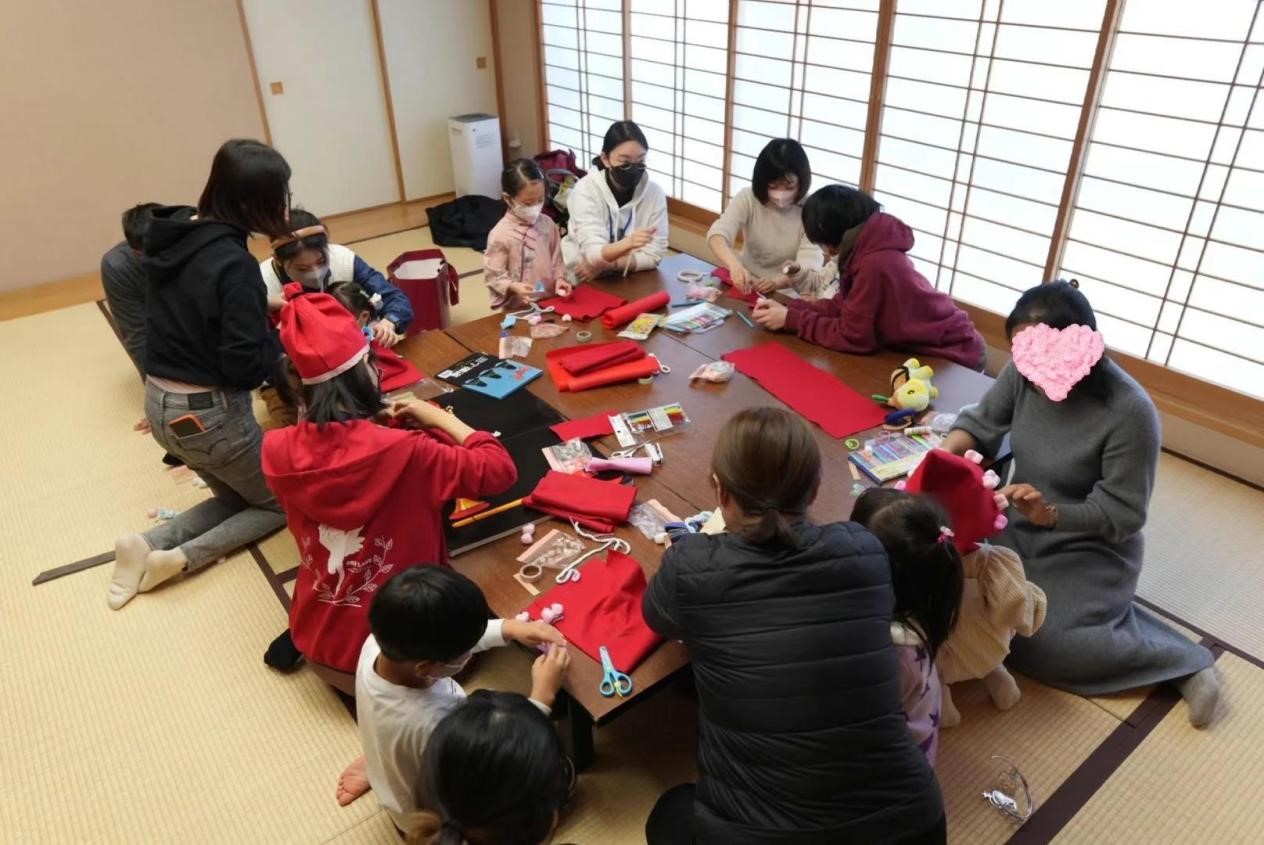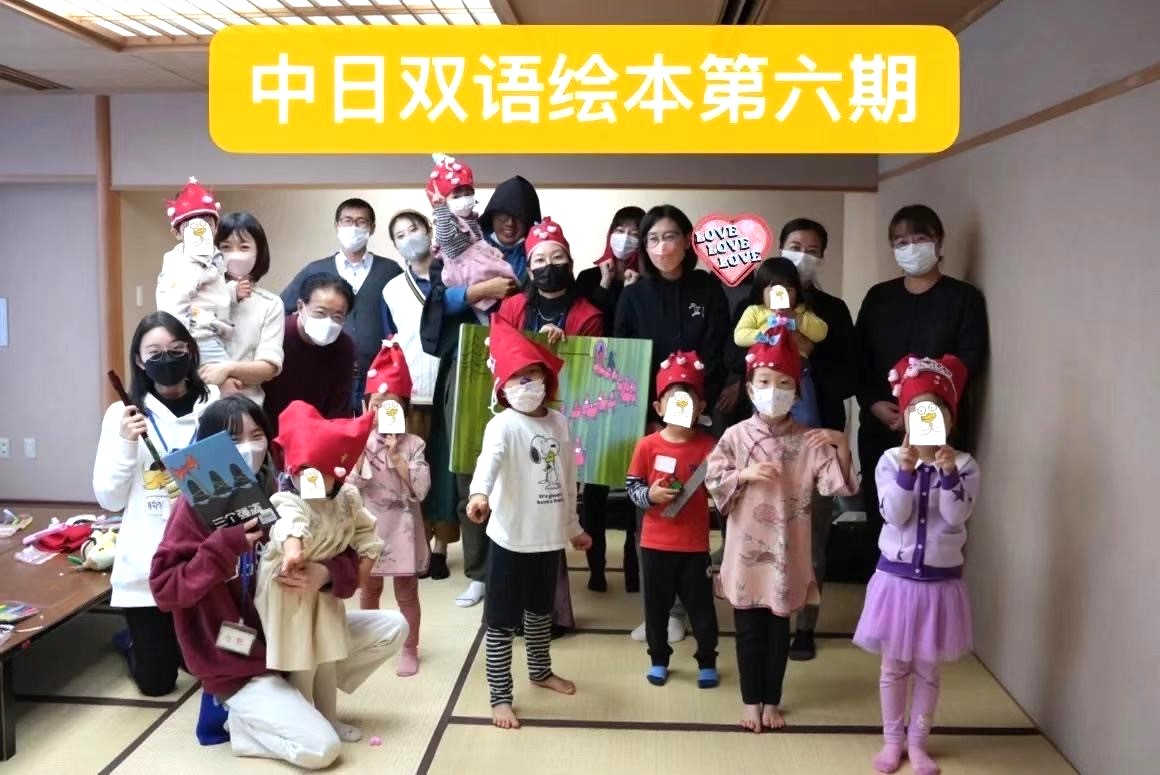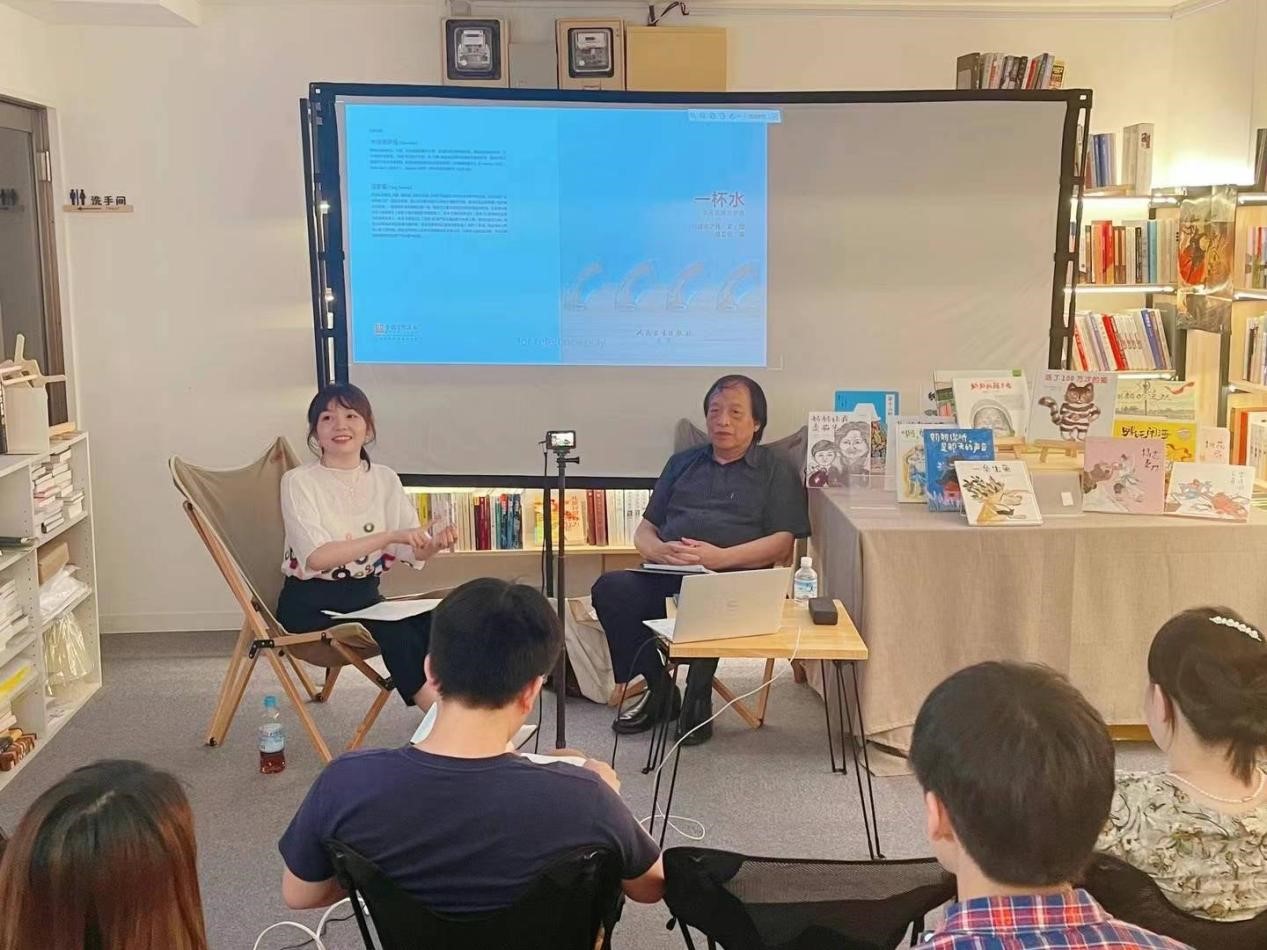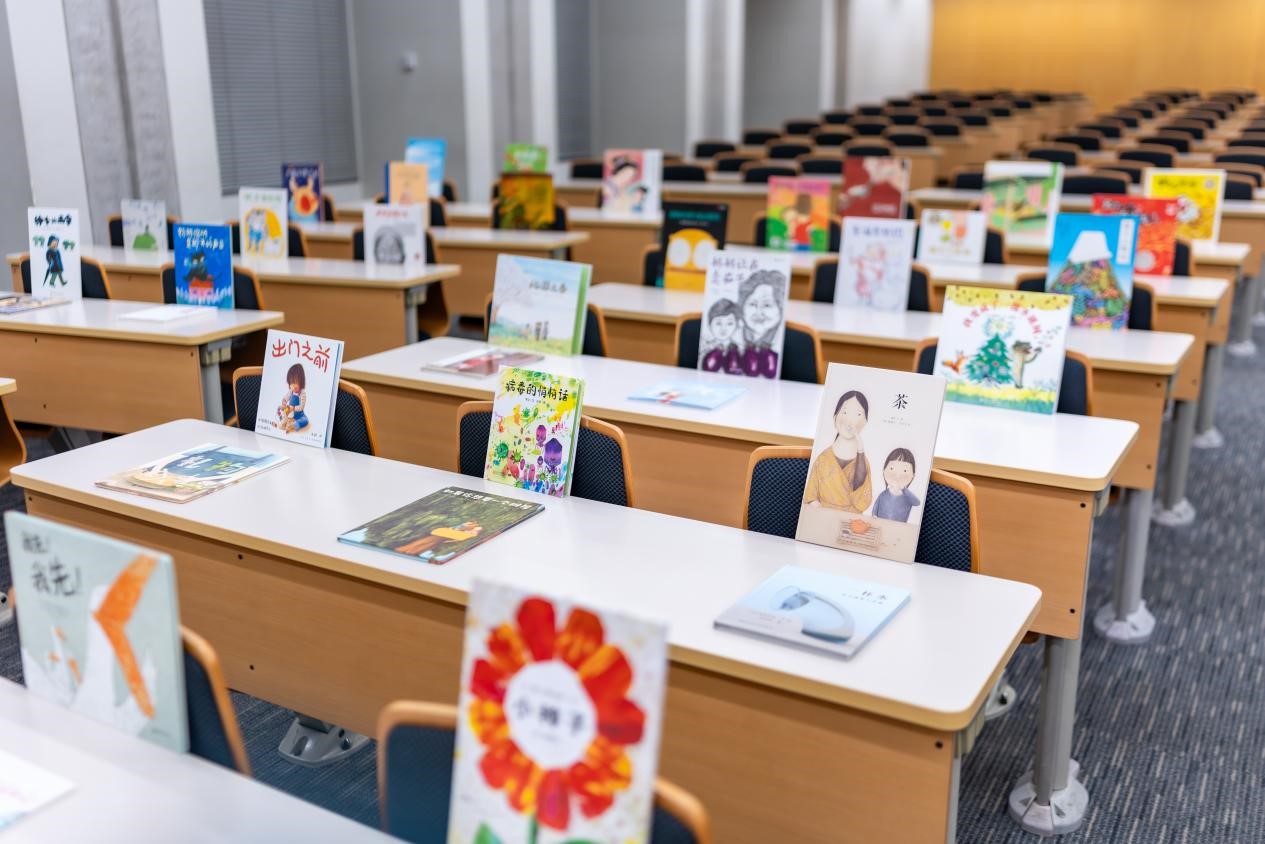Close UP
Nonprofit Organization Hoshi no Hikari ~Reading Picture Books in Chinese and Japanese Makes Connections Across Countries, Languages, and Cultures~

The NPO Hoshi no Hikari was established in 2023 in Shinjuku City, which holds Japan's largest number of foreign residents. Hoshi no Hikari offers picture book readings in Chinese and Japanese, and holds picture book talk events; primarily for Chinese parents and their children.
Ms. Chen, the director, and Ms. Duan, the vice director, became friends after their children attended the same nursery school. We spoke with them about how they approach their activities.
Increasing Opportunities for Children to Experience the Chinese Language

Since June 2022, Ms. Chen and Ms. Duan have been conducting monthly picture book reading activities. It was something Ms. Chen's child said that inspired them to begin Hoshi no Hikari's activities.
"Even before we started (our picture book readings), I enjoyed time reading books with my children at home. But after the child entered elementary school, they said, 'Mom, you should stop speaking in Chinese outside. People around you won't understand (what you are saying) and they get confused.' I thought they were sweet kid, but on the other hand, I felt sad."
Due to COVID-19, Ms. Chen's family was unable to return to China. Ms. Chen felt that Chinese -which the family had no opportunity to speak outside of the home - was slowly becoming alien to her children as a minority language.
"I was born and raised in China, where the Chinese language is not a minority at all. I want (our children) to have the experience of speaking Chinese with people other than mom and dad, and I want to tell the children that it is fun to speak with people who know about Chinese culture. In addition, I wanted the children to have friends who are in a similar situation," says Ms. Chen.
On the other hand, Ms. Duan was also interested in how Chinese children should establish their identity while growing up in Japan. This was based on her husband's experience of being bullied because he could not understand Japanese when he first came to Japan as a child.
"We want to create opportunities for children to enjoy learning the Chinese language!" Ms. Chen and Ms. Duan hit it off and immediately began planning picture book reading events. Ms. Chen made a poster in Chinese and posted about the event on the SNS RED. Then, there was a great response from people who had similar needs, and ten families were gathered at the first meeting. Children's Chinese and Japanese language abilities were varied. Ms. Chen and Ms. Duan say that even if the picture book reading is in a language that children do not understand, the reading out itself becomes like a bridge between the language and children, creating a sense of familiarity with both languages for them.
The target age group for the picture book reading is three to five-year-old children. When a title such as The Very Hungry Caterpillar is enjoyed by young children, even one-year-olds participate.


Hoshi no Hikari's picture book reading event is more than just reading picture books to children. First, they sing songs in Japanese and Chinese, and children move their bodies to relieve tension. After the warm-up, organizers alternately read the Chinese and Japanese versions of a chosen picture book to children. Picture books should be large and brightly colored so that children might be tempted to touch them.
After the children enjoy a picture book, a workshop is held to match the theme or atmosphere of the picture book of the day. "If the theme of a picture book is food, children make food out of clay. If a picture book is about buildings, children build their own buildings out of paper cups. We are working to help children understand picture books in three dimensions," says Ms. Duan.
Recently they conducted a four-part workshop with children to create original picture books. Each child came up with their own theme, chose materials, and worked with a picture book artist to create a story.
"The children's ideas were amazing. Many of them had a different format from what we imagine picture books to be. (Some of the children's picture books) had tunnels and some were puzzle games. One child created a solid 10-page story. I was very impressed," recalls Ms. Duan. Hoshi no Hikari is constantly experimenting with various projects.
At the end of the workshop, children presented what they had created rather than just making a picture book. Parents attending the event were very pleased to see their children proudly share their thoughts and creations. Receiving praise from everyone gave the children confidence. Hoshi no Hikari's activities are not limited to picture book reading events. By also providing children opportunities to sing songs and create artwork, they aim to create a space where everyone may enjoy themselves.
"Our goal is not teaching the Chinese language. I want to create a warm community where people can say, 'You can stay here,' " Ms. Chen says.
Aiming to Increase the Number of Children Reading Picture Books in China

Hoshi no Hikari also conducts information outreach to China. In July 2023, inviting Mr. Tang Yaming a picture book author and editor - they hosted an online talk event with a bookstore in China. From the Japanese side, Chinese residents in Japan participated in the event. Participants learned about the differences between picture books in Japan and in China; the different expectations parents have for picture books based on the different cultural values of the two countries, and the influence of picture books on children. The picture book culture has not yet spread very much in China. They say that Chinese picture books use complicated words that are difficult for children to understand.
"China is a competitive society, and children study from morning to night. Recently, depression among elementary and middle school students has become a social problem. I hope that children's time and children's hearts will be more valued through picture books," says Ms. Chen.
In China, parents are not in the habit of buying picture books for their children. Many parents wonder why they have to buy books that have few words and are not educational. However, according to Mr. Tang Yaming, a similar reaction in Japan existed before picture books became widespread. He says that the picture book market was established through the efforts of various people.
"Children have a world to which they only belong in childhood. As they grow up, that world becomes lost to them. That is why I want to cherish that world when they are children. For this reason, I would like to introduce picture books to the Chinese people as much as possible," says Ms. Duan.
Even in China, the development of social networking services is gradually changing things. Although many parents used to regard picture books as not having any educational value, parents who see their children enjoying picture books are gradually beginning to think that it is okay because their children are enjoying them.

Each of the members of Hoshi no Hikari (including Ms. Chen and Ms. Duan, who continue their activities) has a special passion for picture books and reading aloud to children.
"In the countryside where I lived as a child, there were only school textbooks, so I always had a longing for books. I bought a lot of them before my children were born, hoping they would like (books). My 5-year-old daughter loves books and enjoys reading different ones by herself. She even wants to be a reader at our read-aloud events," says Ms. Chen.
Ms. Duan says, "I have been reading books since I was a little girl. But when I was a child, there were no picture books at home. My mother used to tell me bedtime stories about fairy tales and episodes from history. Those times are happy and healing memories even now when I recall them. I feel that important connections are created between parents and children through picture books and storytelling time."
Expanding Connections that Transcend Countries, Languages, and Cultural Boundaries from the Local Community


Hoshi no Hikari is also gradually starting to engage in activities that are rooted in the local community. They participated in the community event Waseda Earth Appreciation Festival 2023, in September 2023. They read picture books in a classroom at Waseda University, and also displayed Chinese language picture books as well as traditional Chinese toys and masks.
"Many of my children's friends from daycare came to the Earth Appreciation Festival. My children's friends include not only Japanese but also American and French children, as well as children with both Japanese and Korean parents. All of those children enjoyed the event. And I felt a desire for all children to enjoy Chinese culture, even if they are not Chinese," says Ms. Duan.
Hoshi no Hikari hopes to offer Chinese picture book readings for non-Chinese children in the community in the future. "The reading time should be short, about 30 minutes, and I hope that the children will enjoy it as much as if they were just listening to the Chinese pronunciation. It would be nice if we could create connections that transcend cultural barriers, regardless of nationality or level of Chinese language ability."
"I would like to collaborate with other organizations to do on-site picture book readings in Chinese and Japanese. It would be a dream come true if I could read picture books at the Book House Cafe in Jimbocho, or the Chihiro Art Museum; which is famous for its picture books," Ms. Chen says with her eyes shining.
Hoshi no Hikari says that they are exploring various possibilities while continuing their activities as a group. Talking with Ms. Chen and Ms. Duan, it is clear that ideas of what they want to do are pouring out of them, one after another. All of these are ideas to make a better place of this world in which our children will live in the future.
Ms. Chen explains their thoughts on the name of the organization, Hoshi no Hikari (Light of Stars), as follows:
"(Each) star is a small light, but when they are gathered together, they can make the night sky beautiful. Even without great power, if we keep doing what we can do, I think we can make the world a wonderful place."。
The light emitted by Hoshi no Hikari is beginning to shine, slowly but surely.
